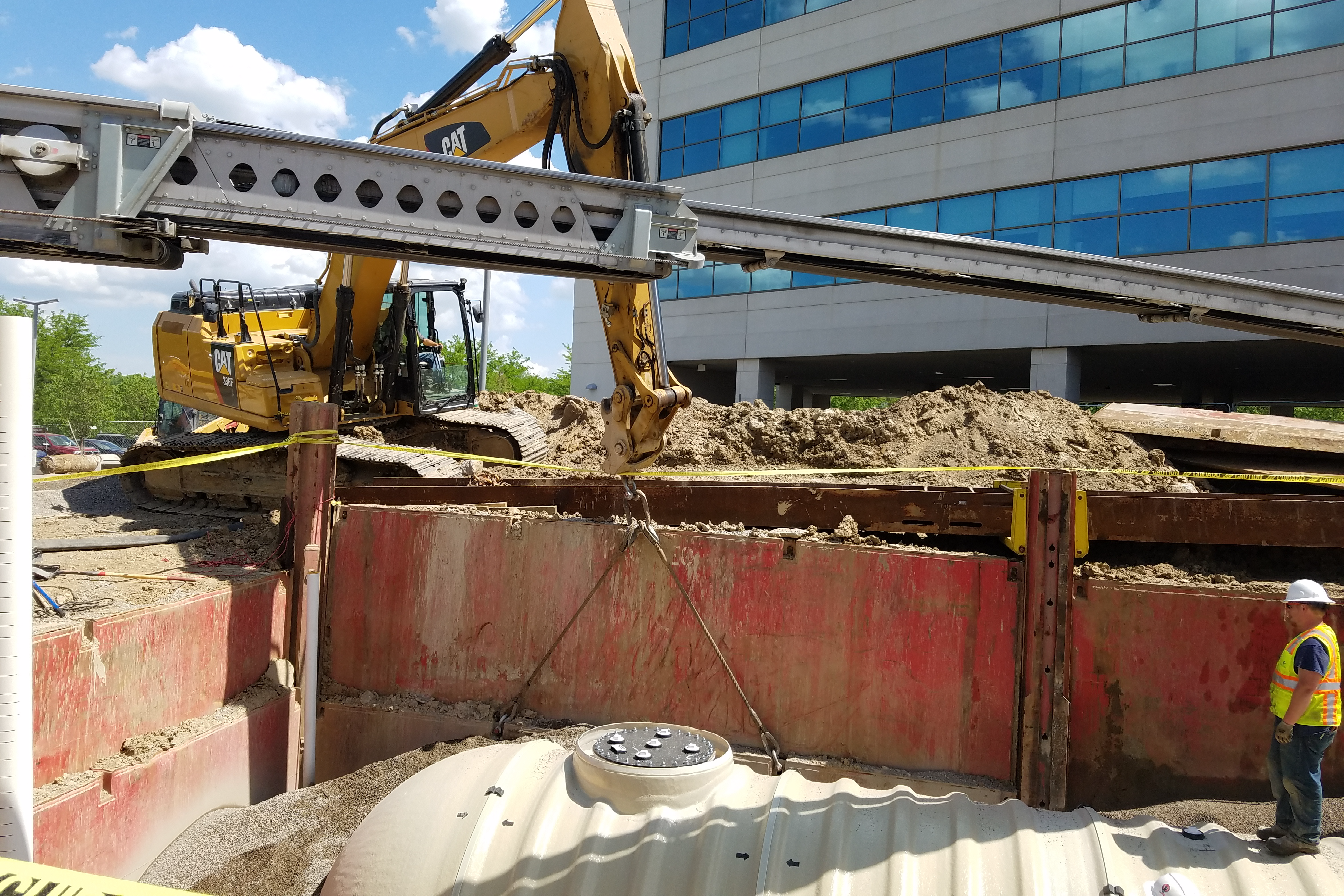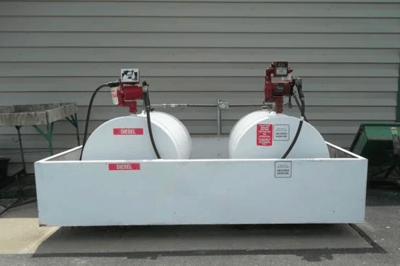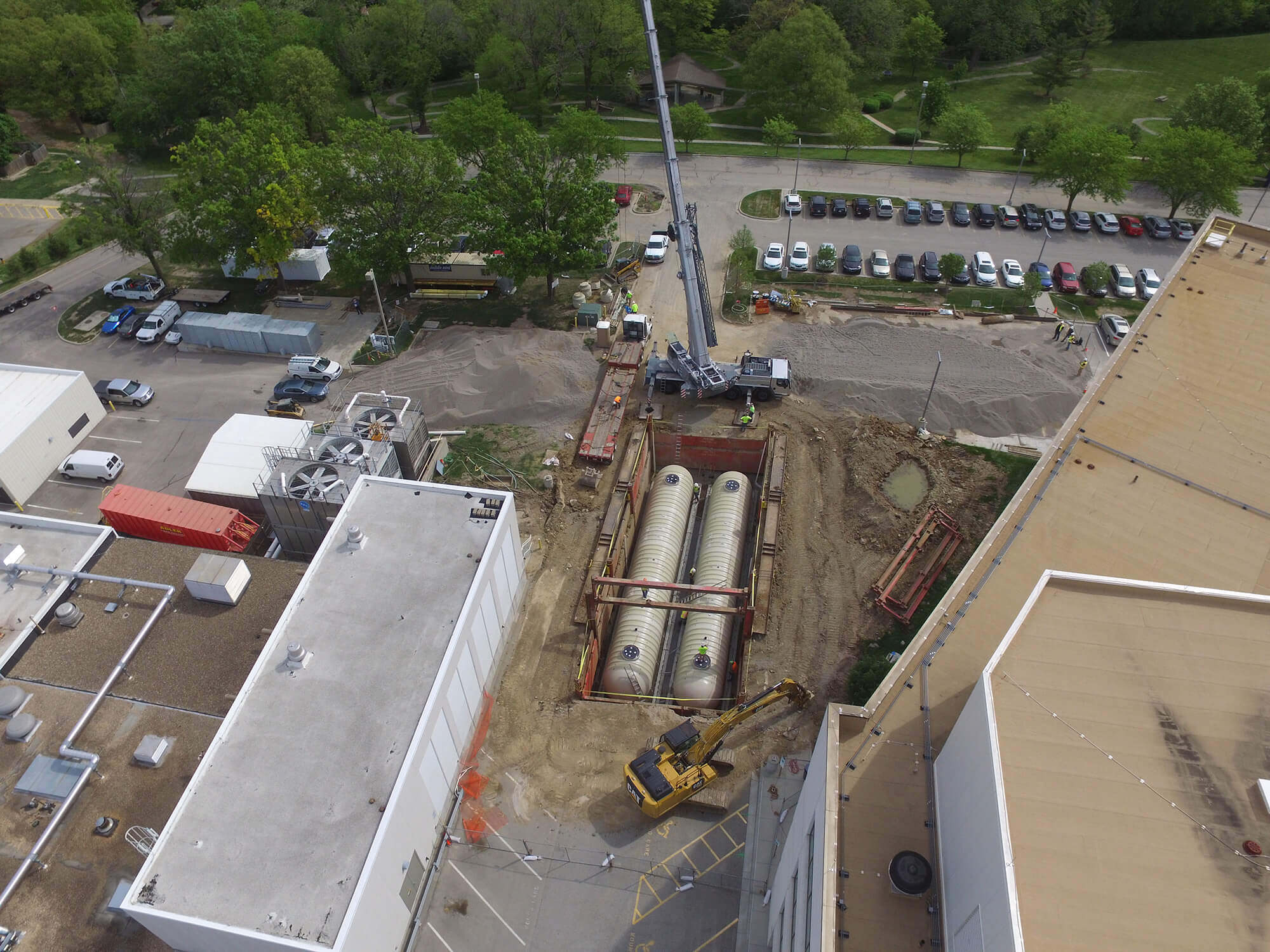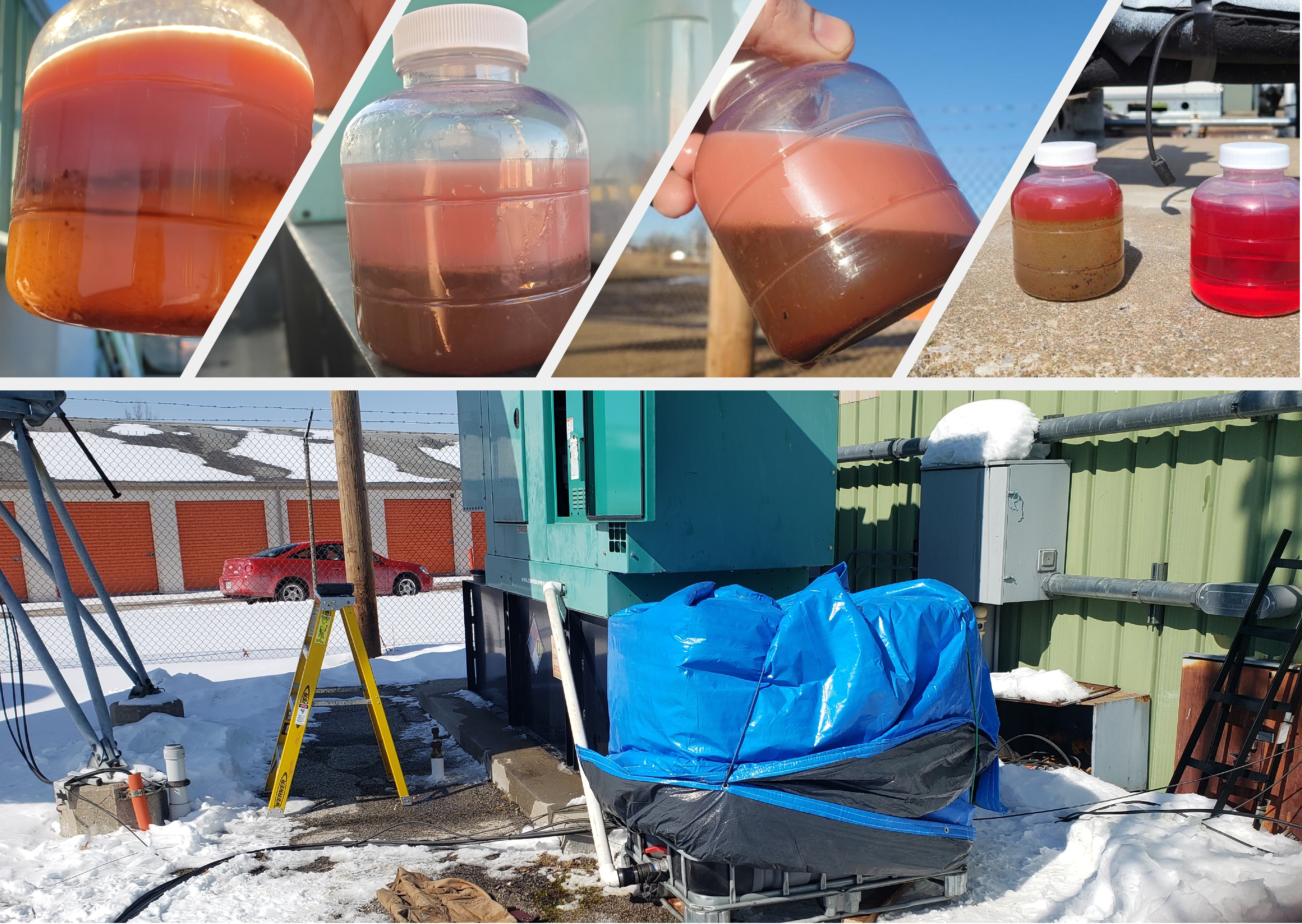7 min read
Is Your Critical Fuel System Prepared for Power Outages?
 Jason Swan, Director of Energy Systems
:
Mar 12, 2024
Jason Swan, Director of Energy Systems
:
Mar 12, 2024

When the power goes out, backup generators become the lifeline for critical operations like hospitals, data centers, and telecommunication networks. However, these emergency power systems are only as reliable as the fuel that powers them.
This comprehensive guide explores the importance of critical fuel system management, the consequences of neglect, and best practices for ensuring your backup power is ready when you need it most.
What's Inside?
- The Real Consequences of Power Outages
- Fuel Maintenance as a Lifeline for Emergency Response
- How Degraded Fuel Cripples Your Emergency Generator
- The Effects of Stagnant Fuel on Generator Performance and Longevity
- Best Practices for Fuel Systems Sampling
- What are Critical Fuel Systems Compliance Regulations?
The emergency generator hums in the background, a silent promise of steadfast power during the chaos of an outage. It's a million-dollar investment, a technological guardian angel for your business. But what happens when your critical fuel system falters, not due to faulty wires or mechanical gremlins, but because its lifeblood – the fuel – is neglected?
For telecommunications giants, data centers safeguarding life-critical information, and health care facilities where seconds matter, power outages are more than inconveniences; they're potential disasters. They translate to lost productivity, plummeting customer satisfaction, and in extreme cases, even loss of life.
Yet, a surprising gap exists between the meticulous design and construction of these backup systems and the ongoing care they receive. Millions are poured into building the fortress, but the drawbridge – the fuel system – is often left unguarded.
The Real Consequences of Power Outages
In today's interconnected world, reliable electricity is the lifeblood of our homes, businesses, and communities. But what happens when the lights go out? While power outages may seem like temporary inconveniences, the reality is their consequences can be far-reaching and deeply impactful. Let's delve into the true cost of darkness, exploring the financial losses, customer dissatisfaction, and even potential risks to lives that outages can bring.
Financial Fallout
-
Business disruptions: Lost productivity, halted operations, and damaged equipment – power outages translate to significant financial losses for businesses. From restaurants losing perishable inventory to factories experiencing manufacturing delays, the ripple effect can be vast.
-
Increased costs: Emergency generators, repairs, and replacement or rental equipment add to the financial burden. Outages can also strain local economies, affecting tourism, retail sales, and various service industries.
-
Infrastructure damage: Extensive outages can damage critical infrastructure, leading to costly repairs and long-term economic strain.
Customer Dissatisfaction
-
Broken trust: Frequent or prolonged outages can erode customer trust in utility providers, leading to frustration and dissatisfaction. In today's competitive market, reliable service is crucial for maintaining a positive brand image.
-
Operational impact: Outages disrupt customer-facing operations, leading to missed appointments, cancelled reservations, and lost sales. In a world where immediacy is key, businesses struggle to retain customers impacted by disruptions.
-
Digital disconnect: In an increasingly online world, outages sever customer communication channels, creating frustration and hindering service delivery. This can be particularly detrimental for businesses that rely heavily on digital interaction.
Potential Risks to Lives
-
Medical emergencies: Life-supporting medical equipment relies on constant power. Outages can put vulnerable individuals at risk, especially in hospitals, nursing homes, and for those reliant on home-based equipment.
-
Foodborne illness: Spoilage of refrigerated food during outages can lead to foodborne illnesses, posing health risks to individuals and communities.
-
Extreme weather events: During extreme heat or cold, outages can exacerbate health risks for vulnerable populations, particularly the elderly and young children.
Fuel Maintenance as a Lifeline for Emergency Response
When disaster strikes, reliable communication, access to healthcare, and the smooth operation of critical infrastructure become more vital than ever. Yet, even the most carefully crafted emergency response plans can be crippled by an often-overlooked factor: fuel maintenance.
Telecom: The Untangled Lifeline
Imagine an emergency unfolding – a natural disaster, a public safety crisis. Amidst the chaos, clear communication channels are essential for coordinating response efforts, alerting the public, and ensuring the safety of citizens.
Now, picture this lifeline severed by a power outage.Panic sets in as phone lines go dead, leaving first responders and the public disconnected. But what if the culprit wasn't the grid, but contaminated fuel crippling backup generators?
This chilling scenario highlights the critical role of fuel maintenance in telecom emergency response. Regular fuel testing, proper storage, and proactive maintenance ensure backup generators spring to life when needed, keeping the communication lifeline intact.
Healthcare: A Beacon of Hope, Always Shining
Hospitals and medical facilities are our havens of healing, especially during emergencies. But their ability to provide lifesaving care hinges on uninterrupted power. Imagine the unthinkable – a blackout plunging a hospital into darkness, jeopardizing critical care equipment and endangering patients.
Contaminated fuel in backup generators can turn this nightmare into reality. By prioritizing fuel maintenance, healthcare facilities can help guarantee their generators are ready to illuminate hope during even the darkest moments.
Manufacturing: Keeping the Wheels Turning
From essential supplies to vital infrastructure, manufacturing facilities play a crucial role in emergency response. But their complex operations and machinery rely heavily on uninterrupted power.
A power outage, compounded by faulty backup generators due to neglected fuel, can bring production to a standstill, hindering emergency response efforts and causing widespread disruption. Proactive fuel management ensures generators are ready to keep the wheels of production turning, even when the lights go out.
How Degraded Fuel Cripples Your Emergency Generator
The comforting hum of your backup generator lulls you into a false sense of security. It stands sentinel, promising unwavering power when darkness falls. But have you ever considered the silent enemy lurking within its fuel tank – degradation? Just like any perishable item, diesel fuel has a shelf life, and neglecting its care can transform your guardian angel into a silent saboteur during an emergency.
The Accelerated Decline
Modern diesel fuel, unlike its predecessors, degrades much faster, with an ideal lifespan of 6-12 months under perfect conditions. But those pristine scenarios rarely mirror the reality of your generator's fuel tank. Unlike gas stations with constant fuel turnover, your emergency reserve often sits stagnant for months, even years. This stagnant state accelerates the degradation process, turning your fuel into a ticking time bomb waiting to explode in your most critical moment.
The Devastating Consequences
Imagine the scene: a storm plunges your world into darkness. You rush to your generator, expecting to hear its comforting roar. Instead, silence. Degraded fuel has clogged injectors, gummed up lines, and rendered your lifeline useless. The consequences ripple outwards:
-
Lost communication: Hospitals go dark, businesses grind to a halt, and communities are left isolated in the aftermath.
-
Disrupted services: Essential services like water purification and medical equipment falter, jeopardizing lives and public safety.
-
Financial losses: Downtime translates to lost revenue, damaged equipment, and potential legal repercussions.
Safeguarding Your Power Lifeline |
|
|
REGULAR FUEL TESTING |
Schedule periodic testing to identify degradation before it becomes a problem. |
|
FUEL ADDITIVES |
Utilize approved additives to stabilize fuel and slow down the degradation process. |
|
PROACTIVE MAINTENANCE |
Partner with a reliable fuel management service for expert handling, filtration, and monitoring. |
|
PROPER STORAGE |
Ensure your fuel tanks are clean, well-maintained, kept filled at or slightly under the 90% legal fill limit, and protected from moisture and contamination. |
How Long Does Fuel Last?
Many fuel refineries will tell you these days diesel fuel can be stored for 6-12 months in ideal conditions. This doesn’t impact diesel fuel at a point-of-sale location (gas station) to the same extent as an emergency generator fuel system.
At a gas station, there is a much more frequent turnover since customers are constantly purchasing fuel and draining down the bulk tanks leading to new fuel drops and turnover in those bulk tanks. In an emergency generator fuel system when seldom used, the fuel can stay stagnant for several years or even decades.
Effects of Stagnant Fuel on Generator Performance and Longevity
Since diesel fuel is a refined oil product (hydrocarbon), it will ultimately naturally begin to break down into its pre-refined self in as little as 12 months, some say. As the fuel breaks down, there can be solid byproducts which lead to sediment and particulates within the fuel tank.
In addition, since fuel is a hydrocarbon, water is naturally integrated into its chemical makeup. Over time, the water can separate out from the fuel or condensation and debris can be introduced into your tank from the outside via vents or other means. Water in your fuel tank contributes to oxidation of metal components as well as bacterial and fungal growth (microbes).
All these factors may not seem very problematic at first glance, but they lead to serious fuel quality problems. Sediment and sludge can clog filters, damage pumps and lead to generator loss of prime and ultimate failure.
Water contributes to microbial growth. Microbes and their particulates can clog filters, and microbe excrements lead to corrosion of steel fuel tanks, piping and/or pumping equipment. Fuel quality problems like these lead to emergency generator and/or fuel system failure.
Best Practices for Fuel Systems Sampling
Why would we send a sample from the tank bottom that is half full of water only for the lab to tell us there is water in your fuel? We already know there is a problem if the fuel sample has visual evidence of water, therefore collection of a representative sample from above the water line and sending that for laboratory analysis is generally a better practice and more useful in designing or enhancing the overall fuel treatment action plan.
Fuel samples need to be collected in a fashion that represents the fuel that is picked up by the pumps feeding the generator or smaller holding tanks (day tanks). This is generally 1”- 6” inches from the bottom of the tank, depending on the fuel tank system. Often there is no reason to pull a sample from the very bottom of the tank or from generator fuel filters except to generally observe them.
What are Critical Fuel Systems Compliance Regulations?

Think of critical fuel systems compliance regulations as the rulebook for safe, reliable, and environmentally responsible operation of fuel systems powering essential services like hospitals, data centers, and emergency generators. These regulations cover various aspects, including:
-
Fuel storage and handling: From tank integrity and spill prevention to labeling and security measures.
-
Maintenance and testing: Regular fuel testing, equipment inspections, and maintenance schedules to ensure optimal performance.
-
Operator training: Ensuring personnel handling fuel systems have the necessary knowledge and skills for safe and compliant operation.
-
Environmental protection: Measures to prevent accidental fuel releases and minimize any potential environmental impact.
Who do these regulations impact? The answer isn't always straightforward, as regulations vary depending on location and industry. However, some key players commonly subject to these regulations include:

-
Facility owners and operators: Those responsible for the storage, handling, and use of fuel in critical systems.
-
Fuel suppliers and distributors: They must ensure the fuel sold meets quality standards and comply with transportation regulations.
-
Maintenance and service providers: Responsible for ensuring equipment meets compliance requirements through proper inspections and maintenance.
Stay informed and stay compliant! Consult with relevant regulatory bodies and industry experts at OCCU-TEC to ensure your critical fuel systems comply with all applicable regulations. By doing so, you safeguard your operations, the environment, and most importantly, those who rely on your essential services.
Remember, compliance isn't just about avoiding penalties; it's about responsible stewardship of critical infrastructure and protecting our communities. Working with OCCU-TEC, we’ll help you keep the fuel flowing safely and reliably. Contact us today to ensure your critical fuel systems are ready to handle power outages and other impacts that may cause issues before they start.






